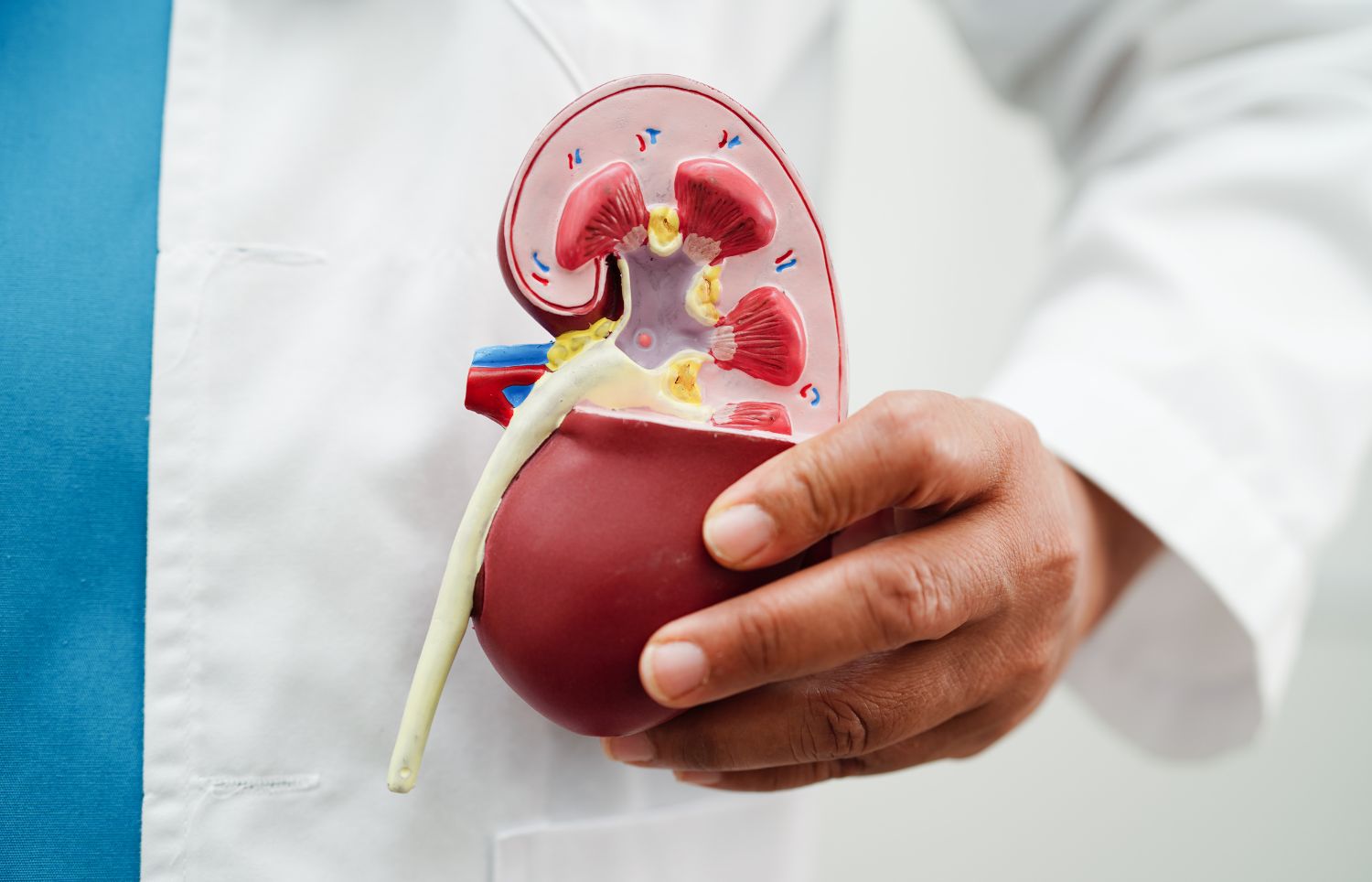Multiple Sclerosis (MS) is a neurological condition, so affects the nerves. A coating around the nerve fibres called myelin becomes damaged and can produce a wide range of symptoms, which vary greatly from person to person. MS is a complex condition and it can take a long time to get a definitive diagnosis due to the symptoms being attributed to other conditions. MS is usually diagnosed when a person is in their early 20s or 30s and affects around 100,000 people in the UK.
There are several types of MS
- Relapsing Remitting (RRMS) – relapses of symptoms with periods of partial or complete remission in between
- Primary Progressive (PPMS) – Symptoms gradually get worse over time
- Secondary Progressive (SPMS) – Sustained build up of disability with separate relapse
- Benign MS – Small number of relapses followed by complete remission, this can only be confirmed retrospectively approx 10 – 15 years after remission
Around 85% of MS sufferers have RRMS and many of these people will go to have Secondary Progressive. It is extremely rare but there is also a type of MS that affects children too.
Symptoms of Multiple Sclerosis (MS)
- Symptoms of MS can be vague and vary greatly but below are the most commonly reported symptoms. Only a healthcare specialist can diagnose MS, which is usually confirmed by an MRI scan which can show detailed images of the damaged nerve fibres.
- Fatigue
- Muscle stiffness and spasms
- Vision disturbances
- Bladder and/ or bowel issues
- Problems with speech and swallowing
- Tremors
- Memory impairment
- Pain
- Affect balance and coordination
Why Might A Person With Multiple Sclerosis Become Incontinent?
Nerve damage caused by MS can affect how the body interprets the signals between the brain and the bladder and bowel. In the bladder, the muscles that store the urine (the detrusor) and and the muscles that empty the bladder (the sphincter) can be affected. The two sets of muscles need to coordinate in order to expel urine. Often, in MS patients, the coordination of these muscles can be affected, which leads to incontinence problems.
Most bowel incontinence issues are caused by constipation, which in turn can lead to overflow incontinence. If a person is less mobile due to MS, this can lead to sluggish bowels and constipation. Many medications for MS can affect bowel motility too. Faecal incontinence can also happen if there are disruptions in the signals from the brain to the bowel resulting in weak sphincter muscles.
Someone with MS may experience
- Frequency
- Urge incontinence
- Overactive Bladder
- Stress incontinence
- Overflow incontinence
- Constipation
- Faecal incontinence
Multiple Sclerosis And Incontinence Treatments
There is plenty that can be done to help improve incontinence in MS patients. There are many conservative methods, which can help improve or it may be a case of adjusting your medication to help alleviate your symptoms. If conservative methods alone are not effective then there are many medications available. As a last resort, if incontinence symptoms are severe then you may be recommended surgery in order to improve your quality of life.
CONSERVATIVE TREATMENTS
Diet And Lifestyle
It is important to keep the bladder and bowel as healthy as possible and that you eat a healthy, balanced diet with plenty of fibre and consume enough fluid (ideally water and around 6-8 glasses a day) in order to regulate the bowel and keep stools at the right consistency to avoid constipation. It is best to limit or avoid caffeine, fizzy drinks and alcohol as these can irritate the bladder. If you are suffering from urinary incontinence, it may appear to be counter-intuitive to drink more fluids but over time the bladder will adapt to the correct volume and less concentrated urine will cause less bladder irritation and cut the risk of bladder infections.
Bladder And/Or Bowel Retraining
Bowel retraining and bladder retraining involves establishing your bladder or bowel into a regular routine and retraining your brain to hold on. You start by going to the bathroom when you get the urge to go and hold for 1 minute before sitting down. Gradually increase the length of time until the you feel more confident with your control. It is also helpful to regulate the times that you visit the toilet. This may alo help to avoid accidents. Make sure that this is at a time that is comfortable and allows enough time so that you don’t feel anxious. Some people also like to record a bladder/bowel diary to see if any foods or drinks affect function.
Establish Routines
Creating a routine can help to avoid accidents. It can help to go to the toilet after every meal or every few hours and make sure you are eating and drinking at regular times. Limit drinks two hours before bedtime to avoid accidents overnight, it is important to make sure that you have had enough to drink during the day though.
Pelvic Floor Muscle Exercises
The pelvic floor is layers of muscles that stretch from the pubic bone to the coccyx and then from side to side. These muscles help to support the bladder and bowel plus the womb in women. These muscles can become weak through trauma such as childbirth or surgery, changing hormones, persistent coughing, chronic constipation or nerve damage from MS. When these muscles become slack it can weaken the sphincter muscle to the rectum or bladder allowing the involuntary passing of stool or urine.
Biofeedback
Biofeedback is a type of bowel training exercise. It involves placing a small electric probe into the rectum and a sensor will measure movement and pressure from the sphincter muscles. You will be asked to squeeze your sphincter muscles and the probe will measure the response. This information will be able to guide whether you are able to learn to squeeze effectively to retain bowel control.
Continence Products
There are many products available that can help you to feel more comfortable and will protect clothing and furniture. These products may be helpful to those who suffer from mobility issues coupled with urgency.
- Incontinence pads and pants – these are available in a variety of sizes and absorbencies and can help to draw fluid away from the skin
- Male continence sheath – these can be worn over the penis and attached to a leg bag. These are particularly useful at night
- Bed pads and mattress protectors – these can help to keep the bed clean and dry. There are also covers and pads available for chairs
Visit the Bladder & Bowel Home Delivery Service for more information and to order these products. Our caring, specially trained advisors can help you decide which option is most suitable for you.
Intermittent Self Catheterisation
If you are retaining urine and unable to empty your bladder effectively then you may be taught intermittent self catheterisation (ISC) as a method for emptying your bladder. This will also help to eliminate overflow incontinence. ISC involves inserting a fine tube into the urethra to drain urine out of the bladder. Cleanliness is a vital part of the preparation in order to avoid introducing infections into the bladder. There are various types of catheter, most are designed to be used once and then thrown away. Your healthcare professional we help you decide what is best for your needs.
Indwelling Catheterisation
If long term catheterisation is needed and you are not suitable for intermittent self catheterisation then you may be advised to have an indwelling catheter fitted. This involves inserting a fine tube through the urethra up into the bladder. This can be attached to either a valve or a drainage bag. The catheter will need to be replaced every few weeks.
Tibial Nerve Stimulation
Percutaneous Nerve Stimulation or PTNS as it is commonly known is a treatment that directly stimulates the nerves responsible for bladder and bowel control and is a method that can be used to treat incontinence. Some MS patients have found this helpful.
MEDICINAL
Laxatives
Some MS patients are less mobile, this can lead to constipation, which then can in turn lead to overflow incontinence. To relieve constipation quickly, there are some over-the-counter laxatives that can be purchased. These can be used in order to avoid impaction of the bowel and any overflow incontinence as a result. There are a variety of laxatives available that act in different ways. Bulking laxatives such as Fybogel, which work in the same way as increasing fibre in their diet; osmotic laxatives, which work by softening the stool making it easier to pass, and stimulant laxatives such as senna, which encourages peristalsis and stimulates the gut to pass the stool. Make sure that you speak to your local pharmacist or GP about which type of laxative is best to use.
Enemas/ Rectal Irrigation
Rectal irrigation is also known as anal irrigation or trans-anal irrigation is a method that involves emptying the bowel by ‘washing it out’ using a specialised pump, water and irrigation tube. This is an effective treatment in the management of chronic constipation and faecal incontinence.
Enemas can be used to clear impaction from severe constipation and involves administering a solution such as water and sodium phosphate to clear the bowel.
Antispasmodic Medications
There are several medications available which can help prevent spasms of the bladder muscle, which can help reduce urgency and frequency incontinence associated with MS; they belong to a group of medicines known as antimuscarinic or anticholinergic drugs. Below is a list of some medications that may be prescribed and links to more information. These medications are not suitable for some people so it’s important to check that it is safe for a patient to take these.
Darifenacin Hydrobromide
Fesoterodine Fumarate
Oxybutynin
Oxybutynin Transdermal Patch
Solifenacin Succinate
Tolterodine
Trospium Chloride
Betmiga
Betmiga is an oral medication, which acts as a muscle relaxant and can be used to treat frequency and urgency if conservative methods or traditional anticholinergic medications haven’t worked. Some people experience side effects on this medication.
Antimotility Medication
Antimotility/ antidiarrheals such as loperamide, more commonly known as Imodium can be purchased over-the-counter. They work by slowing the gut transit making your stools firmer and pass less frequently. It is important not to use this medication if the person has diarrhoea with blood and/or mucus or has a temperature. Some people find that this type of medication increases pain and bloating in the stomach.
Injectable Treatments
Injectable therapies are available as a treatment, which bulk up the anal sphincter muscles or urethra to improve leakage. This involves injecting a gel into the necessary area to thicken the tissues and prevent soiling and improve control.
SURGICAL
Suprapubic Catheterisation
A suprapubic catheter is an alternative form of long term catheterisation and involves a small surgical procedure to place a tube directly into your bladder through your abdomen. Again you can attach the tube to a valve or a drainage bag.
Botulinum Toxin
Botulinum Toxin or Botox as it is more commonly known is a powerful neurotoxin, which works by blocking the electrical impulses to a nerve, which makes a muscle contract causing muscle paralysis. This is a relatively new treatment licensed to treat bladder overactivity. It will usually only be considered if medications have failed to improve your conditions.
Bladder Augmentation
If conservative treatments and medication have failed then you may be referred to a surgeon to discuss your options. A bladder augmentation is one surgical option available. There are several ways in which this operation can be performed and your surgeon will discuss the best option for you. This operation is considered major surgery and involves cutting the bladder open.
Detrusor Myectomy
A Detrusor Myectomy is a major operation used to treating an overactive bladder with symptoms of urgency and frequency. It involves removing all or part of the outer muscle layer that surrounds the bladder.
Sacral Nerve Stimulation
Sacral Nerve Stimulation or Sacral Neuromodulation (SNM) is a device that is implanted under the skin in the upper buttock. It helps by correcting the messages that run along our nerve pathways. SNM is performed in two stages, first you will undergo an evaluation, and then, depending on your results you will be offered the implant.
Colostomy
If you are suffering from severe faecal incontinence are your MS causes significant mobility or dexterity issues then your surgeon may recommend a bowel diversion in the form of a colostomy. A colostomy involves making a small incision in the abdomen and then pulling through a section of your colon to the surface and sewn to your abdomen, creating an artificial opening called a stoma. Your stool will then be collected in a small pouch that attaches to your stoma. Colostomies can be temporary or made permanent. They are usually a last resort surgery if all other methods have not been successful.
Further information and downloads can be found in the RESOURCES section. Living with a bladder or bowel condition or caring for someone with a bladder and bowel condition can affect you emotionally and socially; sometimes it can help to speak to others who understand your situation. The Bladder & Bowel Community Support Group is available 24 hours today and will allow you to connect with those who share your condition. Start your own topic today or just follow one that interests you.








